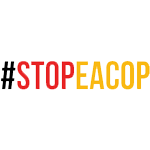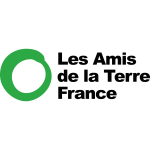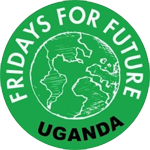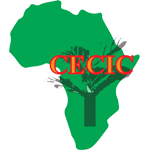MOzambique LNG
A mega-carbon bomb in Mozambique
TotalEnergies is currently looking to restart Mozambique LNG, which will create a massive carbon bomb, contributing to emit between 3.3 and 4.5 billion tonnes of CO2 equivalent over its lifetime. This is more than the combined annual greenhouse gas emissions of all 27 European Union countries.
The project, which was being developed in the Cabo Delgado region, was suspended in April 2021, following several armed attacks in the region. TotalEnergies intends to restart work despite the continuing conflict in the area and the risks to the safety and human rights of local populations.
In 2020, 31 financial institutions – including Crédit Agricole, the Export-Import Bank of the United States, Mizuho Bank, Société Générale and Standard Chartered – signed loan agreements for the $15.4 billion project. Many of these banks are committed to limiting global warming to 1.5°C, yet such a commitment is incompatible with financing such a carbon bombs.
In 2020, 31 financial institutions signed loan agreements for the $15.4 billion project
The Mozambique LNG project
Between 2010 and 2013, huge gas reserves were discovered in Mozambique by the Texas-based company Anadarko and the Mozambique Rovuma Venture (MRV) consortium, made up of Eni, ExxonMobil and China’s CNPC.
Nearly 5,000 billion cubic meters have been discovered in the deepwater gas fields (2,000 meters deep) in blocks 1 and 4 of the Rovuma Basin in the Indian Ocean, making it the ninth largest gas reserve in the world. By way of comparison, this is the equivalent of half the gas reserves held by the world’s leading gas producer, the USA.
The gas field is divided into 4 blocks. Block 1, comprising the Golfinho and Atum offshore fields and representing at least 60% of the basin’s known reserves, is part of the Mozambique LNG project. If the project were to be restarted, the gas extracted would be brought onshore by an underwater gas pipeline and then processed into liquefied natural gas (LNG) at the onshore Afungi site.
Afungi is a huge 18,000-hectare industrial park (almost twice the size of Paris), where the gas would be processed in two liquefaction trains, with a total capacity of 13.1 million tonnes per year. TotalEnergies plans to eventually develop two further liquefaction trains to boost production. The Mozambique LNG project also includes port infrastructure, which would be used for LNG exports.
The Mozambique LNG project is currently operated by TotalEnergies, which acquired it from Anadarko in September 2019 and holds a 26.5% stake, alongside Mozambique’s state-owned Empresa Nacional de Hidrocarbonetos (15%), Japan’s Mitsui (20%), India’s ONGC Videsh (16%), BPCL (10%), Bharat Petroleum (10%) and Oil India (4%), and Thailand’s PTTEP (8. 5%). Estimated to cost between $20 and $24 billion in 2020, the project represents the largest private investment ever made on the African continent.
The Mozambique LNG project would be the second liquefied natural gas project in the area, following the Coral South FLNG project operated by Eni in Block 4. If it goes ahead, it would be followed in Block 4 by the Rovuma LNG project (operated by Eni and ExxonMobil) and the Coral North FLNG project (operated by Eni) which are still seeking financing.
RISKY FOR THE CLIMATE AND FOR LOCAL POPULATIONS
Between
3.3 et 4.5 billion
tonnes of CO2 equivalent
A massive carbon bomb
The project’s 2014 environmental impact assessment estimates that the project’s greenhouse gas emissions could increase Mozambique’s emissions by 10% per year. When operating at full capacity, the project will produce around 18 million tonnes of CO2 per year. If all emissions, including methane, are taken into account, the Mozambique LNG project could produce between 3.3 and 4.5 billion tonnes of CO2 equivalent over its lifetime, more than the combined annual greenhouse gas emissions of all 27 European Union countries.
As such, it is not compatible with limiting global warming to 1.5°C, given that the International Energy Agency’s (IEA) Net Zero Emissions (NZE) scenario recommends that new natural gas fields should not be exploited.
A highly dangerous context and a threat to local populations
The northern part of Cabo Delgado province, where the Mozambique LNG project is located, has been a conflict zone for decades with armed insurgencies. Since 2017, attacks by insurgent groups known as Ahlu Sunna Wa-Jama and referred to by the local population as “al-Shabab”, have multiplied in the region. In this particularly dangerous context, the project promoters (Anadarko and then TotalEnergies) havea responsibility to assess and reduce the risks of their operations for the local population. Learn more
A useless project for Mozambique
90% of Mozambique LNG’s gas will be exported, and would therefore not help to improve access to energy for the population of Mozambique. Furthermore, the Mozambican national oil and gas company ENH will only receive part of the expected earnings – which may turn out to be lower than announced. But the company will first have to repay the loan it took out to participate in the project. In addition, TotalEnergies could avoid paying up to $1.45 billion in taxes, thanks to the creation of a “letterbox” company in the United Arab Emirates, a well-known tax haven.
There is also no evidence that communities are benefiting from the project in terms of job creation. Indeed, temporary or permanent jobs at the project do not match the training and skills of local populations, and very few permanent jobs are expected to be maintained beyond the production phase.
Un contexte très dangereux et une menace pour les populations locales
Le nord de la province du Cabo Delgado, où est situé le projet Mozambique LNG, est depuis des décennies une zone de conflit dans laquelle se développent des insurrections armées. Depuis 2017, les attaques de groupes d’insurgés connus sous le nom de Ahlu Sunna Wa-Jama, et que la population locale appelle « al-Shabab », se multiplient dans la région.
Dans ce contexte particulièrement dangereux, les promoteurs du projet (Anadarko puis TotalEnergies) avaient la responsabilité d’évaluer et de réduire les risques de leurs opérations pour les populations locales.
Pourtant, leur approche semble avoir sous-estimé les risques humanitaires et sécuritaires ainsi que la complexité des opérations dans une telle zone de conflit. De nombreuses failles et insuffisances ont été identifiées dans leur approche,12 qui auraient notamment eu des conséquences directes et fatales lors de l’attaque du 21 mars 2021, durant laquelle 1193 personnes seraient mortes ou disparues.13 Une plainte a été déposée en octobre 2023 visant TotalEnergies pour « non-assistance à personne en danger » et « homicide involontaire » lors de cette attaque. Selon cette plainte, l’entreprise aurait manqué à son devoir de protection des sous-traitants et des personnes en danger immédiat de mort.14
Suite à ces attaques, TotalEnergies a suspendu les activités du projet Mozambique LNG en avril 2021 pour cause de force majeure. Pour les populations qui ont été déplacées, cela a entrainé une interruption pendant plusieurs années des paiements des compensations, alors qu’elles ont perdu leurs moyens de subsistance et que beaucoup ont dû fuir vers des camps de déplacés.15
Aujourd’hui, TotalEnergies souhaite redémarrer les opérations du projet Mozambique LNG, et affirme que la situation sécuritaire est « sous contrôle » à Cabo Delgado. L’entreprise a commandé un rapport sur la situation socio-économique, humanitaire et des droits humains dans la région,16 et a repris le processus d’indemnisation.
Cependant, si la situation s’est effectivement améliorée, les attaques contre les populations restent fréquentes dans la région, et des massacres, enlèvements et déplacements de populations restent à déplorer chaque mois.17 La reprise de Mozambique LNG semble donc imprudente et irresponsable si elle implique de continuer à opérer dans un contexte aussi instable.
Enfin, le projet Mozambique LNG menace également les écosystèmes uniques et vulnérables dans lesquels il est situé, notamment le parc national des Quirimbas – une réserve de biosphère de l’UNESCO. Ces écosystèmes sont constitués de forêts de mangroves, de récifs coralliens et d’herbiers marins qui sont extrêmement importants pour la biodiversité. Le projet met en péril ces écosystèmes et des animaux menacés comme le rorqual boréal, les tortues luth et les tortues imbriquées.18
Un projet inutile pour la Papouasie-Nouvelle-Guinée
90% de la production de Mozambique LNG est destinée à l’exportation, et ne répondrait donc pas à améliorer l’accès à l’énergie de la population du Mozambique.19 Par ailleurs, seule une partie des bénéfices, qui pourraient s’avérer moins élevés qu’annoncé, reviendra à la compagnie pétro-gazière nationale mozambicaine ENH. Mais celle-ci devra d’abord rembourser le prêt qu’elle a contracté pour participer au projet.20 En outre, TotalEnergies pourrait éviter de payer jusqu’à 1.45 milliards de dollars d’impôts, suite à la créationd’une société “boîte aux lettres” aux Émirats Arabes Unis, un paradis fiscal bien connu. 21
Rien ne prouve non plus que les communautés profitent du projet en termes de création d’emplois. En effet, les emplois temporaires ou permanents ne correspondent pas aux formations et aux capacités des populations locales, et très peu d’emplois permanents devraient être maintenus au-delà de la phase de production.22

Mozambique is already suffering from the effects of climate change and Mozambique LNG will only make that worse. If financial actors really want to invest in development, in bettering the lives of Mozambicans, their money should go into education, into housing, into renewable, just energy systems for people.
Anabela Lemos, Director of the Mozambican NGO Justiça Ambiental!
A CONTESTED PROJECT
For several years, the Mozambican organization Justiça Ambiental! (JA!) has been analyzing and highlighting the environmental and human rights risks of gas projects in northern Mozambique. The organization works directly with communities affected by gas projects, supporting them in their legal procedures and in their advocacy with the State of Mozambique and companies.
With support from organizations in Mozambique, Africa and around the world, the organization recently published a call to the 31 financial institutions supporting TotalEnergies’ Mozambique LNG project.

It’s time to end the bankrolling of destructive, colonial fossil fuel extractivism and perpetuating decades of human rights and environmental abuses in countries on the frontlines of the climate crisis.
Daniel Ribeiro, Representative of the Mozambican NGO Justiça Ambiental!
FINANCIAL PARTNERS MUST WITHDRAW FROM THE PROJECT

As financial advisor for the project, Société Générale supported TotalEnergies in setting the financial structure of the project and provided it with several loans adding up to $500 million. Yet the bank recently recognized the need to stop oil and gas expansion by announcing that it would no longer finance new oil and gas fields and associated infrastructure (including LNG export terminals), with the aim of limiting global warming to 1.5°C. The bank should therefore match its words with deeds by withdrawing its financial support from the Mozambique LNG project.

Another French bank, Crédit Agricole, is particularly involved in LNG projects in the Cabo Delgado region. It has granted $300 million for the Mozambique LNG project, and acts as the financial advisor for the Rovuma LNG project.
Yet the bank committed in 2024 to stop financing such projects and later announced that it would no longer participate in issuing conventional bonds for companies involved in oil and gas extraction and production. Following this announcements, Crédit Agricole should withdraw its financial support from the Mozambique LNG project.
29 other commercial banks, export credit agencies and development banks were involved in financing the Mozambique LNG project, with a total of $15.4 billion. While many of them have pledged to take action to keep global warming below 1.5°C, it is time for them to take on their responsibilities and abandon the Mozambique LNG project and rule out support for any oil and gas expansion project.
| Commercial banks | Loans |
|---|---|
| Bank | Mln$US |
| ABSA Bank | 300 |
| Crédit Agricole | 300 |
| ICBC | 300 |
| JP Morgan | 340 |
| Mizuho Bank | 867.5 | MUFG Bank | 500 | Nedbank/NBSA | 150 | Nippon Life Insurance | 150 | Rand Merchant Bank/FirstRand | 100 | Shinsei Bank | 50 | Société Générale | 500 | Standard Bank | 485 | Standard Chartered Bank | 500 | Sumitomo Mitsui Banking Corporation | 570 | Sumitomo Mitsui Trust Holdings | 200 |
| Export credit agencies | Loans |
|---|---|
| Agency | Mln$US |
| African Export Import Bank | 120 |
| Export-Import Bank of Korea (KEXIM) | 500 |
| Export Import Bank of the United States (US EXIM) | 4,700 |
| Export-Import Bank of Thailand (Thai Exim) | 150 |
| Japan Bank for International Cooperation (JBIC) | 3,000 |
| UK Export Finance (UKEF) | 300 |
| Export credit agencies | Debt coverage |
|---|---|
| Agency | Mln$US |
| Atradius | 1,177 |
| Export Crédit Insurance Corporation of South Africa (ECIC) | 800 |
| Nippon Export and Investment Insurance (NEXI) | 2,000 |
| Servizi Assicurativi del Commercio Estero (SACE) | 950 |
| UK Export Finance (UKEF) | 700 |
| Development banks | Loans |
|---|---|
| Bank | Mln$US |
| African Development Bank (AfDB) | 400 |
| Cassa Depositi e Prestiti | 650 |
| Development Bank of Southern Africa | 120 |
| Industrial Development Corporation of South Africa | 150 |
| Development banks | Debt coverage |
|---|---|
| Bank | Mln$US |
| Korea Development Bank | 15 |
| Development banks | Insurance |
|---|---|
| Bank | Mln$US |
| US International Development Finance Corp (DFC) | 1,500 |
Sources: IJGlobal ; Justiça Ambiental et al., Fuelling the crisis in Mozambique, 2022 ; Solutions For Our Climate, Total Turmoil, 2024
Learn more
Mozambique LNG: Call to Withdraw from the TotalEnergies Project, call by 124 civil society organizations urging the 31 financial institutions that financed the project to withdraw their support, 2023. Read
Fueling the Crisis in Mozambique, report on gas projects in Mozambique and the financial support provided by export credit agencies. Justiça Ambiental! et al., 2022. Read
Locked out of a Just Transition : fossil fuel financing in Africa, report on the expansion of oil and gas in Africa and the financial actors supporting it. Banktrack et al., 2022. Read
Too Late to Count : a financial analysis of Mozambique’s gas sector, report on the revenues generated by the gas sector in Mozambique, Open Oil, 2021 Read
From Gas Eldorado to Chaos: When France Pushes Mozambique into the Gas Trap, Friends of the Earth France and Justiça Ambiental!, 2020 Read




































